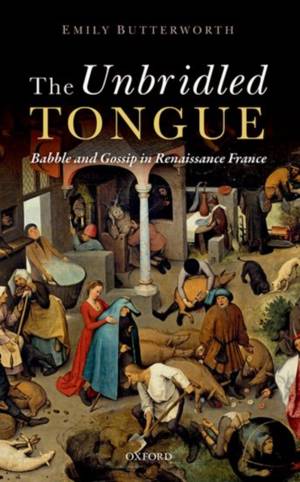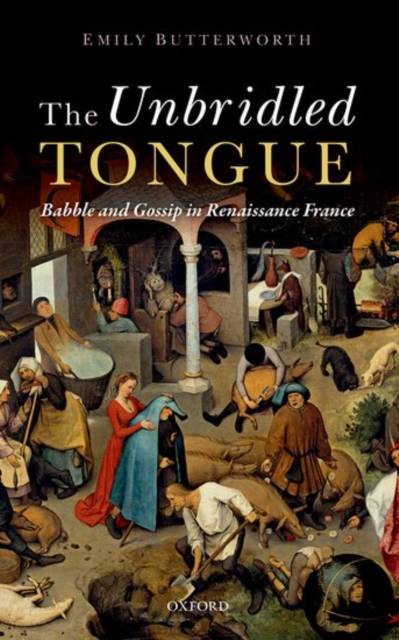
- Afhalen na 1 uur in een winkel met voorraad
- Gratis thuislevering in België vanaf € 30
- Ruim aanbod met 7 miljoen producten
- Afhalen na 1 uur in een winkel met voorraad
- Gratis thuislevering in België vanaf € 30
- Ruim aanbod met 7 miljoen producten
Zoeken
The Unbridled Tongue
Babble and Gossip in Renaissance France
Emily (Department of French, Department of French, King's Colleg
Hardcover
€ 156,95
+ 313 punten
Omschrijving
The Unbridled Tongue is a book about talking too much and why it was considered not just inadvisable but dangerous in sixteenth-century Europe. Drawing on a wide range of sources and approaches, it is the first book to address Renaissance literary portrayals of gossip and rumour in a social, religious, political, and historical frame.
Specificaties
Betrokkenen
- Auteur(s):
- Uitgeverij:
Inhoud
- Aantal bladzijden:
- 250
Eigenschappen
- Productcode (EAN):
- 9780199662302
- Verschijningsdatum:
- 11/02/2016
- Uitvoering:
- Hardcover
- Afmetingen:
- 141 mm x 222 mm
- Gewicht:
- 418 g

Alleen bij Standaard Boekhandel
+ 313 punten op je klantenkaart van Standaard Boekhandel
Beoordelingen
We publiceren alleen reviews die voldoen aan de voorwaarden voor reviews. Bekijk onze voorwaarden voor reviews.







